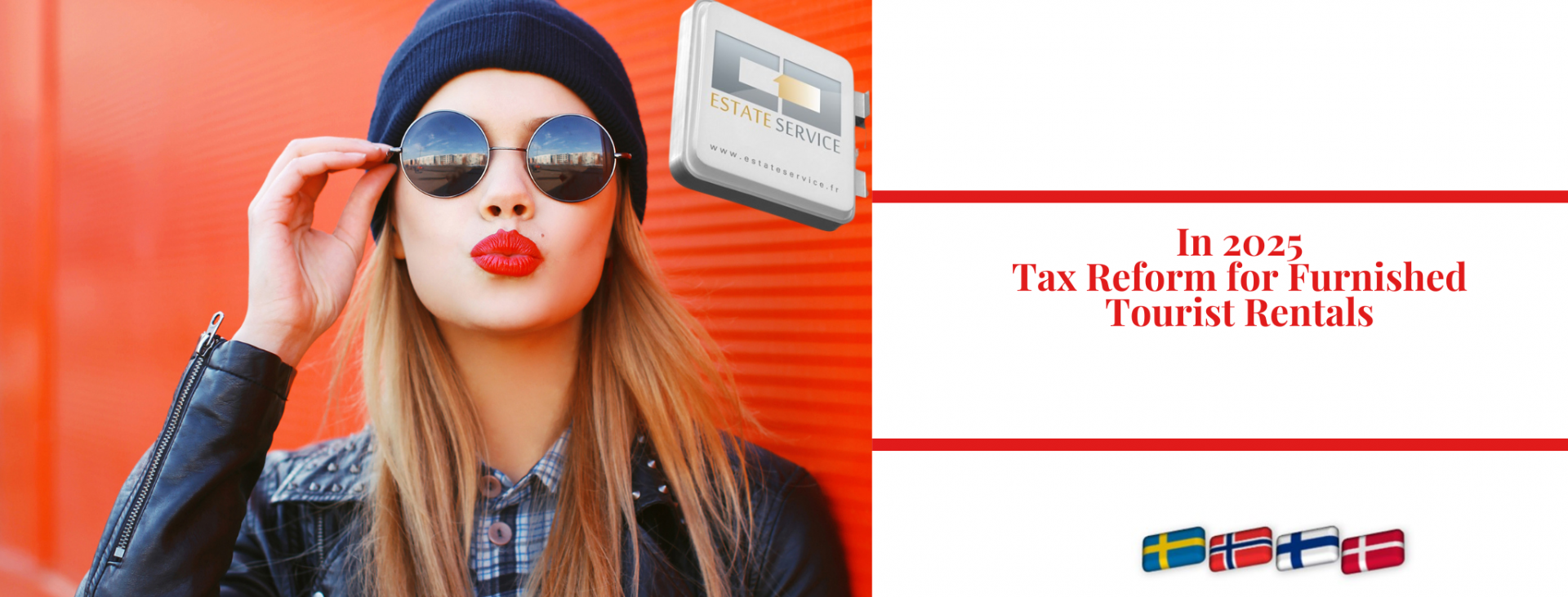In 2025, the regulation of short-term rentals in France will undergo significant changes with the entry into force of the law of November 19, 2024. This reform aims to rebalance the rental market, protect access to permanent housing, and strengthen environmental standards. Below is an explanatory summary of the main measures:
1. Tax Reform for Furnished Tourist Rentals
Reduced tax allowance: As of January 1, 2025, the tax allowance on rental income is reduced to 50% for classified furnished rentals (with a ceiling of €77,700) and to 30% for non-classified rentals (with a ceiling of €15,000), compared to 71% and 50% respectively under the previous system.
Elimination of resale benefits: Depreciation deductions linked to non-professional furnished rentals (LMNP) are now taken into account when calculating capital gains on resale, increasing the tax burden for owners.
2. Energy Performance Requirements
Ban on energy-inefficient properties: Dwellings rated G in the Energy Performance Certificate (DPE) will be banned from short-term rentals starting in 2025. F-rated properties will follow in 2028. All furnished rentals must reach at least class D by 2034.
Penalties for non-compliance: Owners who fail to meet these standards face fines of up to €5,000, and €100 per day of delay for not having a valid DPE.
3. Strengthened Powers for Municipalities
Reduced rental period: Mayors can now limit the maximum rental period of primary residences to 90 days per year, down from 120 days.
Quotas and designated zones: Local urban plans (PLU) may set quotas for tourist rentals by neighborhood and reserve certain areas exclusively for permanent housing.
Mandatory registration with the town hall: All owners must register their property with the municipality, even if it is their primary residence. Failure to do so can result in fines of up to €10,000 for lack of registration, and €20,000 in case of false declarations.
4. Specific Rules for Co-ownership Buildings
Notification to property manager: Co-owners must inform the building’s property manager (syndic) of any short-term rental activity.
Simplified bans: Condominium regulations can now prohibit short-term rentals with a two-thirds majority vote, instead of requiring unanimity as before.
5. Social and Environmental Measures
Tenant protection: Occupants of unhealthy or unsafe tourist accommodations are no longer required to pay rent or any other fees if an official order mandates work to ensure safety or resolve insalubrity issues.
Ban in social housing: It is now forbidden to offer social housing units for short-term rental.
These measures aim to more strictly regulate short-term rentals, promote access to long-term housing for residents, and improve the energy efficiency of buildings. Property owners must adapt to this new regulatory framework to continue offering their properties for seasonal rental in compliance with the law.

